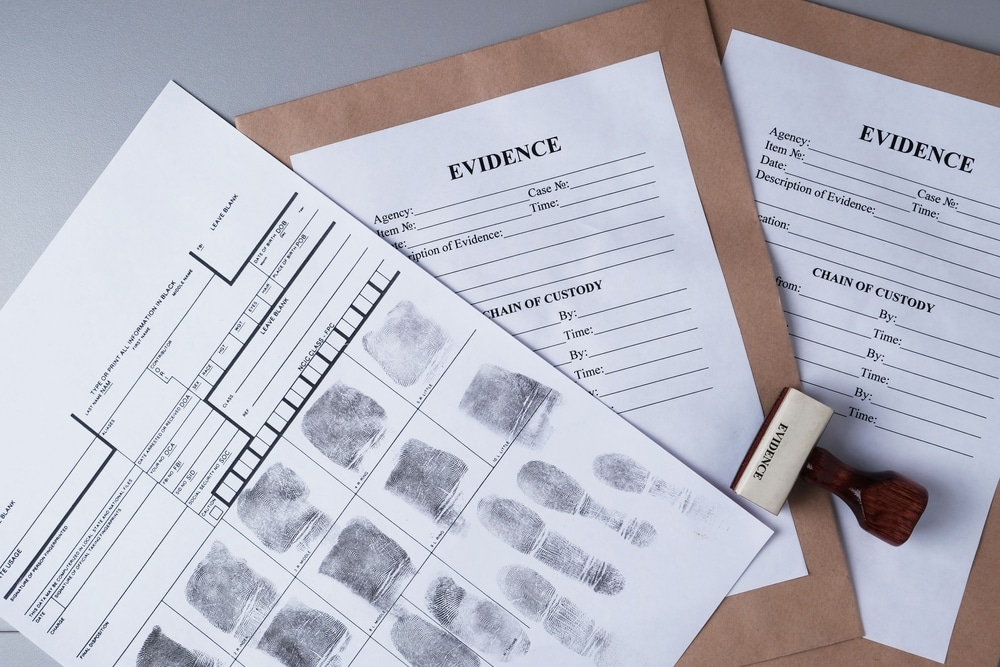Can You Expunge Your Criminal Record in Florida?
You can expunge a criminal record in Florida only if you meet specific legal requirements. Florida law allows expungement for certain arrests or charges that did not result in a conviction. If you were found not guilty, your charges were dismissed, or the court withheld adjudication, and you meet other conditions, you may be eligible to have your record expunged.
A knowledgeable Florida expungement attorney can be beneficial throughout this process. They will review your case to determine if you qualify, gather all necessary documents, and prepare a complete and accurate petition for expungement. They can also represent you in court, if a hearing is required, and ensure the court’s order is properly sent to all relevant agencies. Having a skilled attorney on your side increases the chance of success and prevents mistakes that can delay or damage your case. Their experience can make the complex legal process faster, easier, and less stressful.
Key Takeaways
- Expungement clears your criminal record from public view. It can help with employment, housing, education, and reputation restoration.
- Not all charges are eligible. You may qualify only if your case was dismissed, dropped, or resulted in an acquittal.
- You can only expunge one criminal offense in Florida. You may be ineligible if you’ve had a prior expungement or sealing.
- Certain crimes are excluded. Offenses like domestic violence, sexual offenses, and violent felonies typically cannot be expunged.
- Legal help can improve your chances. An experienced Florida criminal defense attorney can guide you through the process and increase your likelihood of success.
What is a Criminal Records Expungement in Florida?

A criminal records expungement in Florida is a legal process that allows certain criminal records to be sealed or erased from public view. When a record is expunged, the information about the arrest, charges, or conviction is hidden from most background checks and public databases. This makes it harder for employers, landlords, or the general public to find out about a past criminal incident. Although the record is hidden, it still exists in the government files and can sometimes be accessed by law enforcement or the courts under specific circumstances.
Getting an expungement in Florida involves filing a petition with the court. This petition asks the judge to order that the criminal record be expunged. The court will then review the petition, and a hearing may be scheduled where the petitioner must explain why they believe the expungement should be granted. The judge considers whether expunging the record is appropriate under Florida law and decides whether to approve or deny the request.
When a record is expunged, it is treated as if the arrest or charges never occurred for most purposes. For example, individuals do not have to disclose the expunged record when applying for jobs or housing. If an employer or landlord conducts a standard background check, the expunged record will not appear. However, there are exceptions. Certain government agencies and law enforcement officials can still access expunged records if necessary for investigations or other official reasons.
The expungement process can take several months or longer, depending on the complexity of the case and the court system’s workload. During this time, paperwork must be submitted correctly, and deadlines must be followed closely. If mistakes are made or necessary documents are missing, the process can be delayed, or the petition may be denied.
After a court grants an expungement in Florida, the clerk’s office and the Florida Department of Law Enforcement take steps to seal the record in their systems. It includes removing the record from publicly accessible databases. Private companies that provide background checks may also update their reports to exclude the expunged information.
It’s also important to note that even with an expungement, some limitations remain. For instance, in some legal situations, a person might still need to disclose the expunged record, such as when applying for certain government jobs or licenses. Additionally, if a person is later charged with a new crime, law enforcement might access the expunged record as part of their investigation.
Eligibility for a Criminal Records Expungement in Florida
In Florida, eligibility for a criminal record expungement depends on several vital factors established by state law. While not every offense or situation qualifies, there are clear guidelines that help determine who can seek an expungement.
One of the main factors affecting eligibility is the type of offense involved. Generally, not all criminal offenses can be expunged. Minor offenses or charges that were dismissed or resulted in acquittal are often the types of cases eligible for expungement. This means that if the case did not end in a conviction, the individual can request that the record be sealed. However, if someone was convicted of a crime, eligibility for expungement is more limited and usually requires meeting additional criteria.
Another critical aspect of eligibility is the person’s criminal history. Florida law usually does not allow expungement if the individual has multiple prior criminal offenses. If someone has a history of repeated arrests or convictions, it is less likely that they will qualify for expungement. The law aims to give a fresh start only to those with relatively clean records, aside from the particular incident they want to expunge.
The outcome of the case itself is important for eligibility. If the charges were dropped, dismissed, or if the individual was found not guilty, they may be eligible to have the record expunged. However, if a person pleaded guilty or was found guilty, it often complicates their eligibility. There are some exceptions, but generally, a conviction makes expungement harder to obtain unless the case falls under specific categories or the person meets other requirements.
Additionally, the person seeking expungement must not be under criminal justice supervision, such as probation or parole. If someone is still serving a sentence, on probation, or on parole, they usually cannot apply for expungement until all those conditions are completed. This rule ensures that the individual has fully fulfilled their obligations to the court and society before asking for their record to be sealed.
Certain crimes are specifically excluded from expungement eligibility by Florida law. Serious offenses, such as assault and battery, violent crimes, sexual offenses, crimes involving children, are often not eligible. These exclusions are meant to protect public safety and maintain vital records accessible to law enforcement.
Certain offenses committed as a minor fall under juvenile crimes in Florida, which can affect whether a record may be sealed or expunged.
Lastly, even if a person meets all the eligibility criteria, the process is not automatic. The court has the final say and may deny the petition if it believes sealing the record is not in the public’s best interest. The petitioner may have to show the court why expungement should be granted and how it would benefit their rehabilitation and future.
Benefits of Having Your Criminal Record Expunged in Florida
Having your criminal record expunged in Florida offers several benefits that can significantly improve your life. Expungement means that the court orders your criminal record to be sealed from public access, making it much harder for others to see your past offenses during background checks. This process helps people move forward after mistakes by reducing the negative impact a criminal record can have on many areas of life.
- One of the most significant benefits of expungement is improved employment opportunities. Many employers conduct background checks before hiring someone, and a visible criminal record can make it very difficult to find a job. It may lead employers to reject applications without even considering qualifications or experience. Once a record is expunged, most employers will no longer see the criminal history in standard background searches. It allows people to compete fairly for jobs, especially in industries that require trust, responsibility, or security clearance. It can also increase chances of promotion or better pay since the past no longer casts a shadow over your career.
- Housing is another area where expungement provides real advantages. Landlords often run background checks before renting to potential tenants. A criminal record might lead to rejection, forcing many to face unstable or unsafe living conditions. With an expunged record, landlords generally cannot view the offense, making it easier to secure stable, affordable housing. Stable housing is necessary for maintaining employment, family life, and well-being.
- Expungement also helps when applying for education. Many colleges and universities ask applicants to disclose their criminal history, and some programs or financial aid options may be unavailable to those with certain convictions. Having your record expunged means you usually do not have to report it, improving your chances of being accepted into educational programs and qualifying for scholarships or grants. This benefit opens the door to new learning opportunities and career paths that might otherwise be closed.
- Privacy is another key benefit. When your record is expunged, the details of your arrest or charges are removed from public databases, protecting you from stigma and judgment from employers, neighbors, or acquaintances. It helps improve your social and personal relationships by allowing you to leave your past behind.
- Additionally, expungement can assist with restoring certain rights and professional licenses. Some government jobs, volunteer positions, or licenses require a clean record. While expungement does not erase the record completely from government files, it limits access so that the general public and many organizations cannot see it. This makes it easier to regain your rights and participate fully in society.
How Can a Skilled Criminal Defense Attorney in Florida Handle the Expungement Process?

A skilled criminal defense lawyer in Florida can be a valuable partner when you want to go through the criminal records expungement process. Expunging a criminal record is not always simple. It involves legal steps, paperwork, and understanding complex laws. A knowledgeable attorney can guide you through every part of the process and increase your chances of success.
First, an experienced attorney will review your case carefully. They will examine your criminal record, the charges, the case outcomes, and current situation. This review helps the lawyer determine if you are actually eligible for expungement under Florida law. Since not everyone qualifies, this step is crucial. The attorney will explain the laws that apply to your case and advise whether expungement is a realistic option. Your attorney can raise issues around your rights if police arrested you, especially if improper arrest or search tainted your case and affected the record you hope to expunge.
Once eligibility is confirmed, the attorney will gather all necessary documents. This paperwork usually includes court records, arrest reports, and other legal documents related to your case. Getting these records can sometimes be complex or confusing if you don’t know where to look or how to request them. Your attorney will know what is required and collect everything to build a complete petition for the court.
Next, your lawyer will prepare the petition to file with the court. This petition is a formal legal request asking the judge to expunge your criminal record. Writing a petition involves explaining your reasons for seeking expungement and demonstrating why it is in the public’s interest to grant it. A skilled attorney can write this petition clearly and persuasively, increasing the chances that a judge will approve it.
After filing the petition, your attorney will represent you in court and present arguments supporting your request for expungement. It can include showing evidence of your good character, explaining how the expungement will help rebuild your life, and addressing any concerns the judge might have. Having a lawyer speak on your behalf can make a strong impression and clarify complicated legal points.
If the judge approves your petition, the attorney will guide you through the steps to complete the process. It includes ensuring the court orders are properly sent to the clerk’s office, the Florida Department of Law Enforcement, and other agencies holding your records. Your lawyer will confirm that your record is sealed in all appropriate places and correct any mistakes if the expungement is not handled correctly.
Beyond paperwork and court appearances, a skilled attorney can answer your questions and manage expectations about what expungement can and cannot do. For example, expungement does not completely erase your record but seals it from public view. Certain government agencies and law enforcement may still have access. Your attorney will explain these details so you understand the full impact.
FAQs
Q: Why do I need a lawyer to expunge my criminal record in Florida?
A: The expungement process is complex, with strict eligibility rules and detailed paperwork. A skilled criminal defense lawyer ensures that everything is filed correctly, helps avoid delays, and increases your chances of approval.
Q: Can I expunge more than one criminal record in Florida?
A: No. Florida law generally allows only one expungement or sealing in a lifetime, unless certain exceptions apply.
Q: How long does the expungement process take?
A: It can take several months, from gathering documents to obtaining your Certificate of Eligibility and final court approval.
Q: Will expungement completely erase my record?
A: It removes the record from public view, but some government agencies, including law enforcement, may still have limited access.
Speak to a Knowledgeable Florida Criminal Defense Lawyer Today

A knowledgeable criminal defense lawyer can determine your eligibility for a records expungement if you have a criminal record in Florida. If you are eligible to move forward, they can handle every step of the process for you, represent you at your expungement hearing, and pursue a favorable result in your case.
